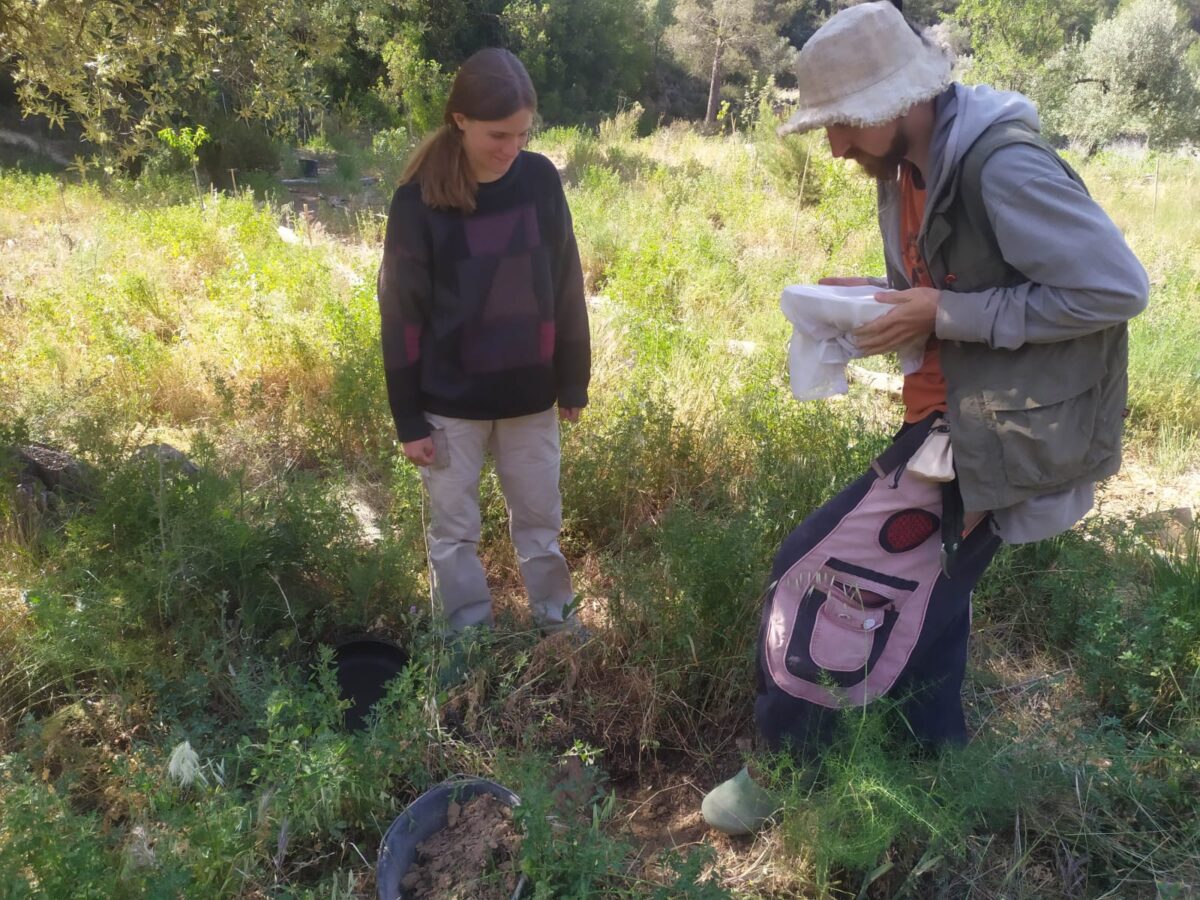
Update from Rovira Regenerativa…
New team member, James, has agreed to make these weekly reports happen. James has been living in Spain for the last five years, mainly teaching English, but also growing vegetables (using Permaculture principles, obvs) in Albacete and getting involved in the city’s environmental activism with the local branch of Extinction Rebellion. He’s worked in various jobs, including as a journalist and translator, and before moving to Spain he worked as an RHS-qualified gardener in his home town of Bristol.
The team drank a bottle of our Rovira Regenerativa wine and agree with Mike, it is highly drinkable. The plan is to think about labelling it and gifting it to the local community.
Anna met the donkey living in the valley and wonders if its owners can help us clear the fennel and add poop (sorry, manure) to the vineyard. Manures contribute to the fertility of the soil by adding organic matter and nutrients, such as nitrogen, that are utilised by bacteria, fungi and other organisms in the soil. Higher organisms then feed on the fungi and bacteria in a chain of life that comprises the soil food web.
Alex and Sara both started the Regenerative Agriculture course at Gandesa. Although there is no one from Caseres or Gandesa on the course, they will try and network with as many participants as possible to encourage their involvement with Rovira. Alex said the course is a good mix of theory and practice, and the guy running it is very engaging and enthusiastic.
Last Friday Alex and Sara went to visit two neighbours who are doing permaculture in their finca, and are interested in the idea of lending a piece of their land to the Rovira Regenerativa project for regenerative agricultural practices. As Sara said, “It’s interesting to connect with them to understand the synergies that might arise.”
In terms of the social and economic aspects of the project, Sara is organising an info-point event to update the inhabitants of Caseres of what the volunteers are doing in the Boodaville Permaculture demonstration site. “We’d love to invite the people from Caseres to visit Boodaville… to open a dialogue between the community and the association,” added Sara. To create a motive for coming, they are going to give out ecological soaps, which they made in Boodaville, in exchange for organic waste for the compost pile. “Since the compost pile needs to be minimum one meter tall… we need a big amount of organic waste to start it,” explained Sara.
In terms of the ecological aspect of the project, the volunteers are designing a way for the newly planted trees to grow in an enriched soil. This will be done through adding biochar plus compost tea in the vicinity of the trees in the agroforestry system at the bottom of the valley. This is to both regenerate the soil and to foster the well-being of the trees, to support them in this delicate moment when they are establishing their root system. “We are thinking which seeds might enrich the syntropic experiment 1,” says Sara, who has started carrying out the annual biodiversity inventory of the food forest, collecting data and creating a protocol that can become useful for future experiments.


